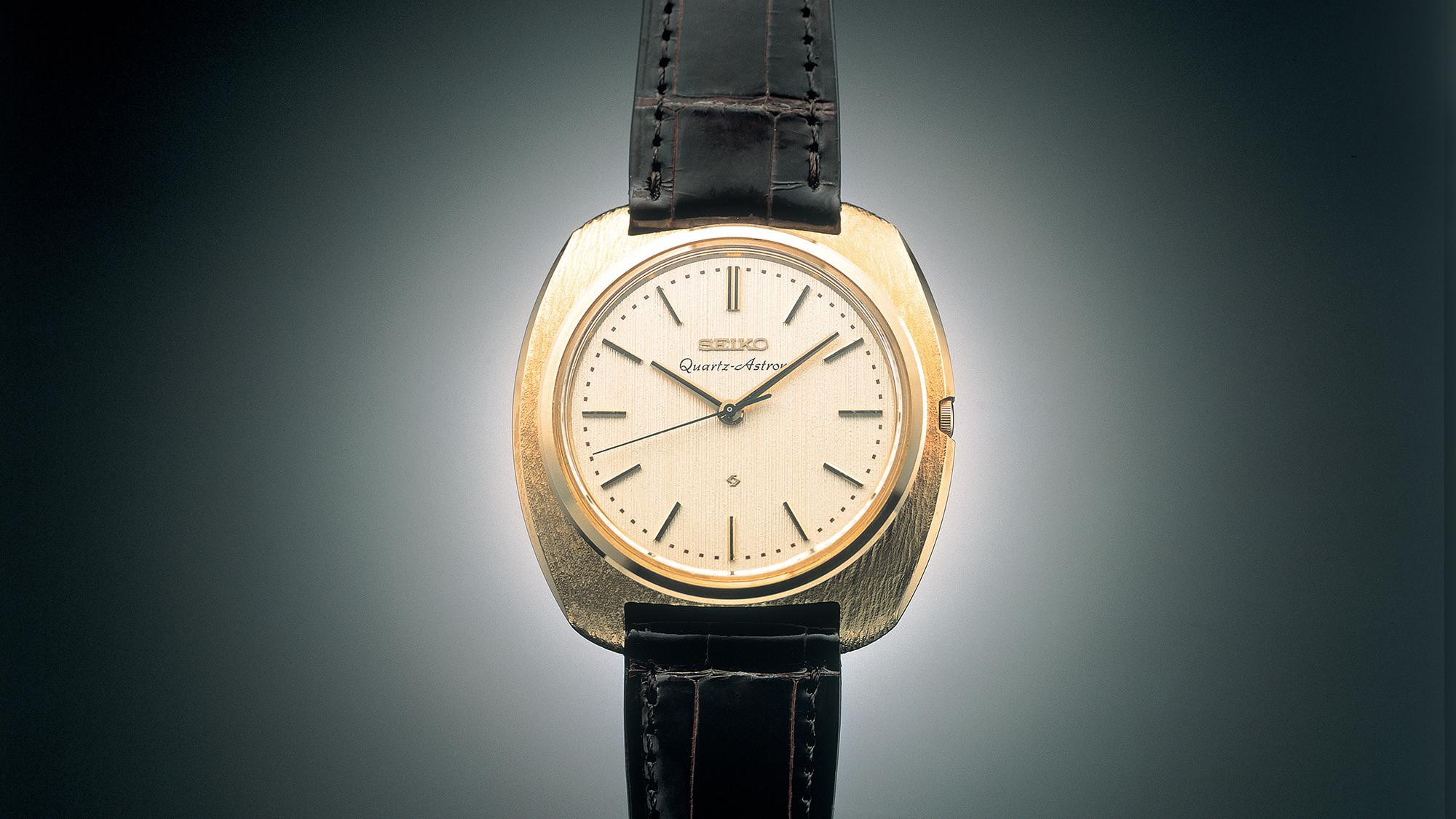Quartz

With Seiko's passion, the Seiko Quartz has brought innovation to the history of watches
The quartz watch, developed in 1969, revolutionized the conventional concept of watches. This is a watch that has a crystal oscillator at its core for accuracy. The crystalline body of a crystal cut to a fixed shape has a characteristic to generate steady vibration if voltage is applied to it.
Through the ages, the idea has existed that this crystal-specific electrical property is used for a crystal oscillator to be the standard of timekeeping accuracy of watches. However, to take advantage of quartz crystal, whose excellence had been demonstrated in terms of accuracy, in a small world
"watch," there were many barriers that had to be overcome.
In 1969, Seiko succeeded in resolving all these issues and made available to the world for the first time a commercially viable quartz watch. It was a long ten years since the start of development plan of crystal oscillation watch at Suwa Seikosha. To develop a quartz watch for practical use,
unique technologies only available by Seiko were created. For example, adoption of a crystal oscillator cut in the shape of a tuning-fork and development of an IC and step motor to properly operate signals from a crystal oscillator had to be created. Additionally, with a passion to change the
future of watches, Seiko did not pursue monopolization on patent rights of those unique technologies and opened them to the world. Later on, many technologies provided by Seiko became world standards and have
contributed to development of present day quartz watches.
- The world's first quartz watch on the market [Seiko Quartz ASTRON]
Released on December 25, 1969, this watch revolutionized the world of time. It was the "Seiko Quartz ASTRON." The quartz frequency at that time was 8192 Hz, one-fourth the frequency today. One of the major features of the watch was its step motion second by mounting an open step motor, which
became the symbol of quartz watches later on.